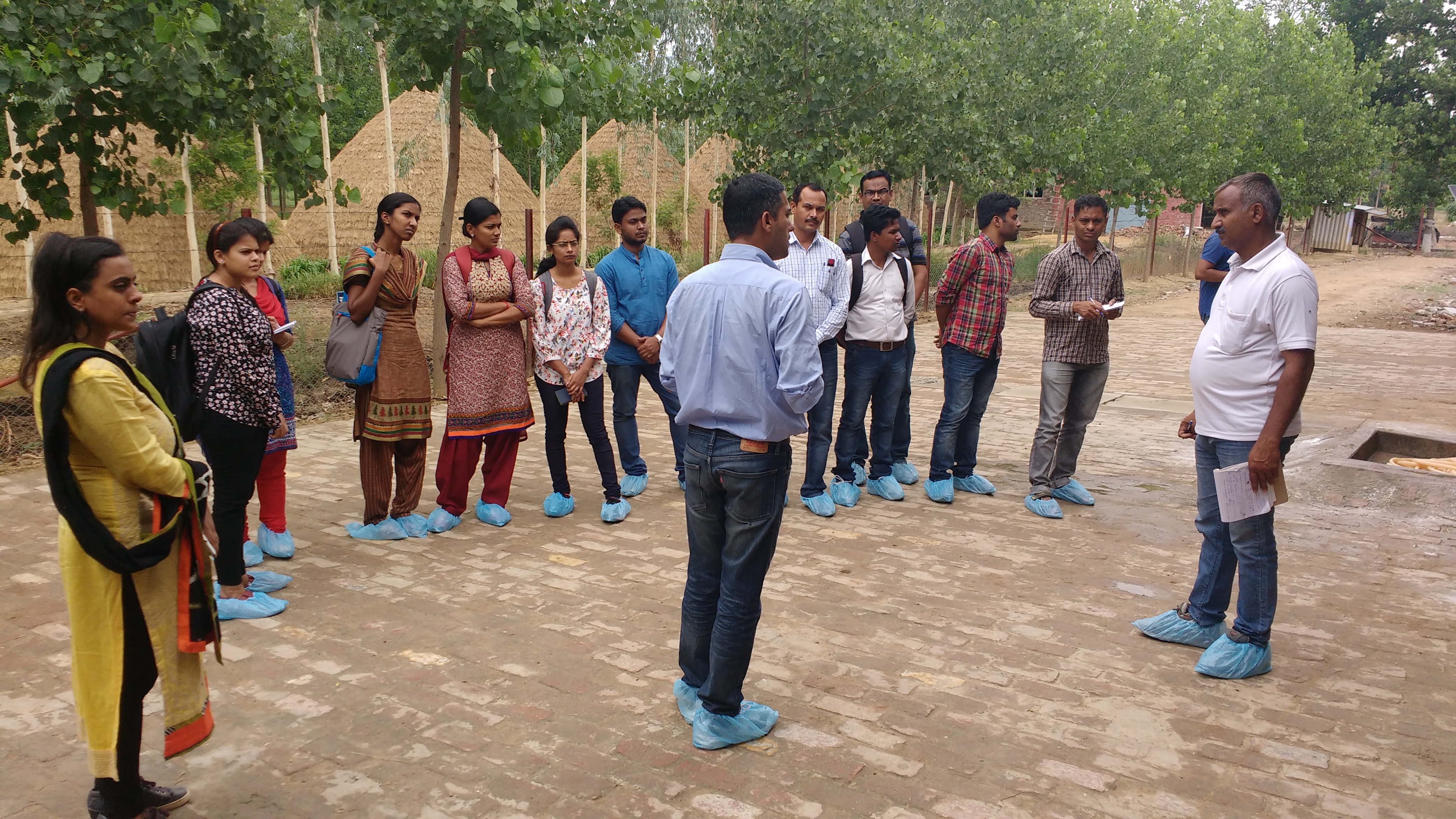Revised & Restructured Agricultural Extension Education Curriculum in India
posted by GFAR
This article was written by Dr. Mahesh Chander: Principal Scientist & Former Head, Division of Extension Education, ICAR- Indian Veterinary Research Institute in Izatnagar, India.
The Context
From 1984 to 1991, I pursued Agricultural Extension & Communication studies, eventually earning a Master’s and Ph.D. in Agricultural Extension Education. For over two decades, I’ve been teaching these subjects in India. While curricula naturally evolve to keep pace with changing times, the Agricultural Extension Education curriculum underwent a significant overhaul in 2021, marking a departure from a long period of stagnation.
The Process
In an effort to modernize agricultural education, the Indian Council of Agricultural Research (ICAR) initiated substantial changes, forming a National Core Group (NCG) to restructure Master’s and Ph.D. curricula. This effort encompassed 79 disciplines under agricultural sciences, with 19 Broad Subject Matter Area (BSMA) Committees tasked with revising the syllabus. A consultative approach involving meetings, workshops, and input from various stakeholders, including institutions and experts, guided this transformation. Aligned with the National Education Policy-2020, the revamped curricula aim to enhance students’ global competitiveness and employability in the agricultural sector while fostering sustainability in agri-food systems.
Discipline-specific Changes
In Agricultural Extension Education, new doctoral-level courses, such as Policy Engagement and Extension, Technology Commercialization and Incubation, Risk Management and Climate Change Adaptation, Livelihood Development, and Facilitation for People-centric Development, have been introduced. At the Master’s level, outdated courses have been replaced with fresh ones like Extension Landscape, Capacity Development, ICTs for Agricultural Extension and Advisory Services, and Enabling Innovation & Gender Mainstreaming. These additions draw inspiration from the New Extensionists Learning Kit (NELK) of the Global Forum for Rural Advisory Services (GFARS).
Having actively participated in the curriculum restructuring process, I attended the National Workshop on ‘Agricultural Extension in India: Time to Change,’ organized by the National Institute of Agricultural Extension Management (MANAGE) in 2018. This workshop, co-organized by the MANAGE-University Alliance for Advancing Agricultural Extension, became a catalyst for re-evaluating and redesigning courses in the field of agricultural extension.
Higher Agricultural Education’s Role in Transforming Agri-food Systems
Agriculture is the linchpin of the Indian economy, supporting over 70% of rural households and contributing 17% to the GDP. Sustainable development in this sector, crucial for agri-food systems transformation, necessitates the creation of skilled professionals. India’s extensive network of ICAR Deemed Universities, Central & State Agricultural Universities, and affiliated agricultural colleges plays a pivotal role in this endeavor. An updated curriculum serves as a vital tool to equip students with the knowledge and skills needed to meet evolving demands and challenges in transforming agri-food systems.
Empowering educators and learners with the necessary knowledge, skills, values, and behaviors is essential for transitioning to a more sustainable food system. The new Agricultural Science curricula should not only focus on agricultural production techniques but should also present a broader socio-economic and environmental perspective of the food system. The introduced courses in Agricultural Extension Education curricula aim to enable students to engage more with producer organizations, NGOs, private sector employers, researchers, and extensionists through practical training opportunities in collaboration with stakeholder organizations.
Expectations from the New Curriculum
For effective agri-food systems transformation, the new curricula should contribute in the following aspects:
- Contribute to National Agricultural Innovation systems aligned with national strategic priorities.
- Respond to changing employment opportunities and technological advances, providing students with skills for the future job market.
- Develop students’ skills in accessing and applying information for solving sustainability issues within the food system.
- Promote system thinking and interdisciplinary approaches towards the entire food system, treating dimensions of food system sustainability as an “indivisible whole.”
- Provide students with knowledge from various fields related to food system sustainability.
- Facilitate learners’ transition to change makers of sustainable agriculture.
- Be relevant to the needs of food system actors and the private sector job market.
- Help students gain a deep understanding of factors at work in the food system.
- Prepare educators with a new mindset and relevant knowledge and pedagogic skills.
Conclusion
The updated curricula in agricultural sciences and other measures taken to improve teaching practices and learning processes are crucial to enhancing productivity and efficiency of food production and ensuring the sustainability of the food system in India. Now that the new curriculum is implemented, an evaluation study may be needed in the near future to assess its effectiveness in meeting the requirements of food systems transformation.
